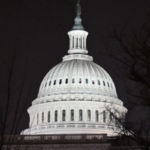In a shocking move that would make California Governor Gavin Newsom blush, the Louisiana legislature is teetering on the brink of a self-imposed insurance catastrophe as it grapples with one of the most anti-business insurance bills in America, backed by Republican Governor Jeff Landry.
The insurance crisis remains the top concern across all recent polls and has plagued Louisiana for over a decade. While the legislature and Insurance Commissioner Tim Temple have proposed reforms modeled after successful initiatives in other states, these efforts have met significant resistance from Governor Landry, who insists on a "more balanced approach" while attending high-dollar hunting expeditions with trial lawyers in the state.
Governor Landry's Controversial Approach
Surprisingly, in a session primarily focused on insurance and lawsuit abuse reform, Republican Governor Jeff Landry has only attended one committee hearing, advocating for House Bill 576, introduced by Democrat Representative Robbie Carter, a trial lawyer with a notorious liberal voting record. This bill, often dubbed a “trial lawyer’s dream,” represents an unprecedented government overreach surpassing California's regulatory environment.
Critics of Governor Landry point to his apparent track record of siding with trial attorneys over the people of his state. Notably, in addition to his elaborate trips, people point to his controversial veto of a popular lawsuit abuse reform in 2024. Former Trump Attorney General Bill Barr blamed Landry for his role in siding with a nearly billion-dollar lawsuit against the oil and gas industry, the state's leading employer. Landry’s appointment of major trial lawyers to the Louisiana State University Board of Supervisors was called a “colossal slap in the face to the people who elected Jeff Landry” by the Hayride, a leading conservative media outlet in Louisiana.
Landry's aggressive push for HB 576 included alleged threats to committee members and warnings of special sessions if the bill did not pass. Despite his relentless efforts, he failed to advance his top priority—a troubling sign for a governor in his second year. In a strategic pivot, he allied with Republican Rep. Glorioso to attach the Democrat bill to House Bill 148, introduced by Republican Rep. Jeff Wiley. Despite this maneuver, the bill’s passage remained uncertain.
Democrats Saved Landry’s Bill
A united front among Democrats was crucial for the success of the Glorioso amendment, highlighting deep divisions within the Republican Party. The amendment passed with a 67-33 vote, but only 36 Republicans supported it, while 33 opposed it. Every single Democrat voted in favor, showcasing the rift among Republicans.
The bill now likely heads to the republican heavy Senate Insurance Committee, led by conservative Senator Kirk Talbot, a highly regarded reform advocate.
Devastating Potential Effects of HB 148
The implications of HB 148 are alarmingly catastrophic. According to the Louisiana Department of Insurance, business groups, consumer advocates, and industry insiders warn that the “poison pill” amendment embedded in the bill could force multiple insurance carriers out of the state, potentially leading to the collapse of Louisiana’s already fragile insurance market. With Louisiana’s notorious reputation for excessive litigation and staggering jury awards—often referred to as "nuclear verdicts"—many insurers already see the state as a high-risk gamble. If this bill passes in any form, it could serve as the kill shot for insurance commerce in Louisiana.
HB 148 now poses two incredibly perilous provisions. Firstly, it grants the Insurance Commissioner unchecked authority to mandate retroactive refunds for rates deemed excessive, based purely on subjective judgments, without any restrictions on how far back these refunds can be applied. This opens the door for any Commissioner, potentially influenced by political motives rather than grounded economic reasoning, to aggressively pursue refunds for rates set decades ago, or even commissions on rates from ten years prior. Such actions could jeopardize the very existence of insurance companies in Louisiana. This aligns with Governor Landry's troubling pattern of siding with trial lawyers to punish a crucial industry that sustains our state’s economy.
Secondly, the bill erases the vital distinction between competitive and non-competitive markets—a distinction upheld by most states for good reason. This change not only dismantles essential protections for insurers but also relegates Louisiana to a negative position, undermining our efforts to attract and retain business investment. The fallout from these changes could be catastrophic.
Insurers depend on a stable regulatory landscape to make informed, strategic decisions. Allowing subjective disapprovals will inject unpredictability into the regulatory framework, severely impairing insurers' abilities to plan and price their products correctly and leading to chaos in the market.
The uncertainty created by this bill could discourage new insurers from entering the Louisiana market and push existing firms to reconsider their presence. A contraction in competition risks severely narrowing consumer choices and may result in significant increases in premiums.
The insurance industry is vital to Louisiana's economic stability. A destabilized market could unleash a wave of detrimental effects, impacting not only insurers but also policyholders, businesses, and the overall economic welfare of Louisiana. The consequences could be nothing short of disastrous for our state's financial landscape.
In a statement on conservative radio, Insurance Commissioner Tim Temple condemned the bill, saying, "We want to make Louisiana a state where insurance companies want to come and compete for our business. This bill does the absolute opposite. A trial lawyer wrote it. Trial lawyers support it. In any form, it will hurt our market."
Temple added, "I don’t work for the insurance companies, trial lawyers, or the governor. I work for the people and will fight to pass legislation that makes a difference, for lowering rates and protecting our market."
If lawmakers fail to recognize the gravity of these implications, Louisiana’s insurance landscape could plunge into chaos, leaving residents vulnerable to skyrocketing costs and an impending crisis that could irreversibly alter the state’s economic future.
Political Maneuvering and Legislative Changes
The Glorioso amendment, designed to enhance the Insurance Commissioner’s authority to reject excessive rate hikes, appears to be a political maneuver aimed at shifting blame. Critics suggest that Landry is positioning Temple to absorb the fallout if insurance rates do not decrease as promised, deflecting criticism from his administration's policy choices while attempting to please both business interests and trial lawyers.
Moreover, HB 148 includes two other harmful changes: allowing the Insurance Commissioner to mandate refunds for rates deemed excessive with no limitations on the lookback period, and repealing the essential distinction between competitive and non-competitive markets. Both could severely undermine insurers' operational frameworks and complicate their ability to navigate the market effectively.
Call for Genuine Solutions
As dissatisfaction grows among Republican voters and within party ranks at the Capitol, many express concern over Landry's direction. Real reform should address the root causes of Louisiana's insurance crisis: rampant lawsuit abuse and an overly regulated market. Instead, Landry’s approach—focusing on increased government control while catering to special interests—appears narrow and dangerously short-sighted.
The time has come for legislators to champion genuine solutions prioritizing a stable, competitive insurance marketplace, ultimately benefiting all Louisianans. If lawmakers fail to act responsibly, the consequences could be catastrophic, leaving Louisiana’s insurance market in ruins and its residents facing uncertain coverage and soaring costs.
As the legislative session unfolds, Louisiana Republicans must rally to reject this perilous trajectory—even in the face of potential backlash from Governor Landry—if they wish to safeguard their jobs and the future of the state’s insurance industry.









